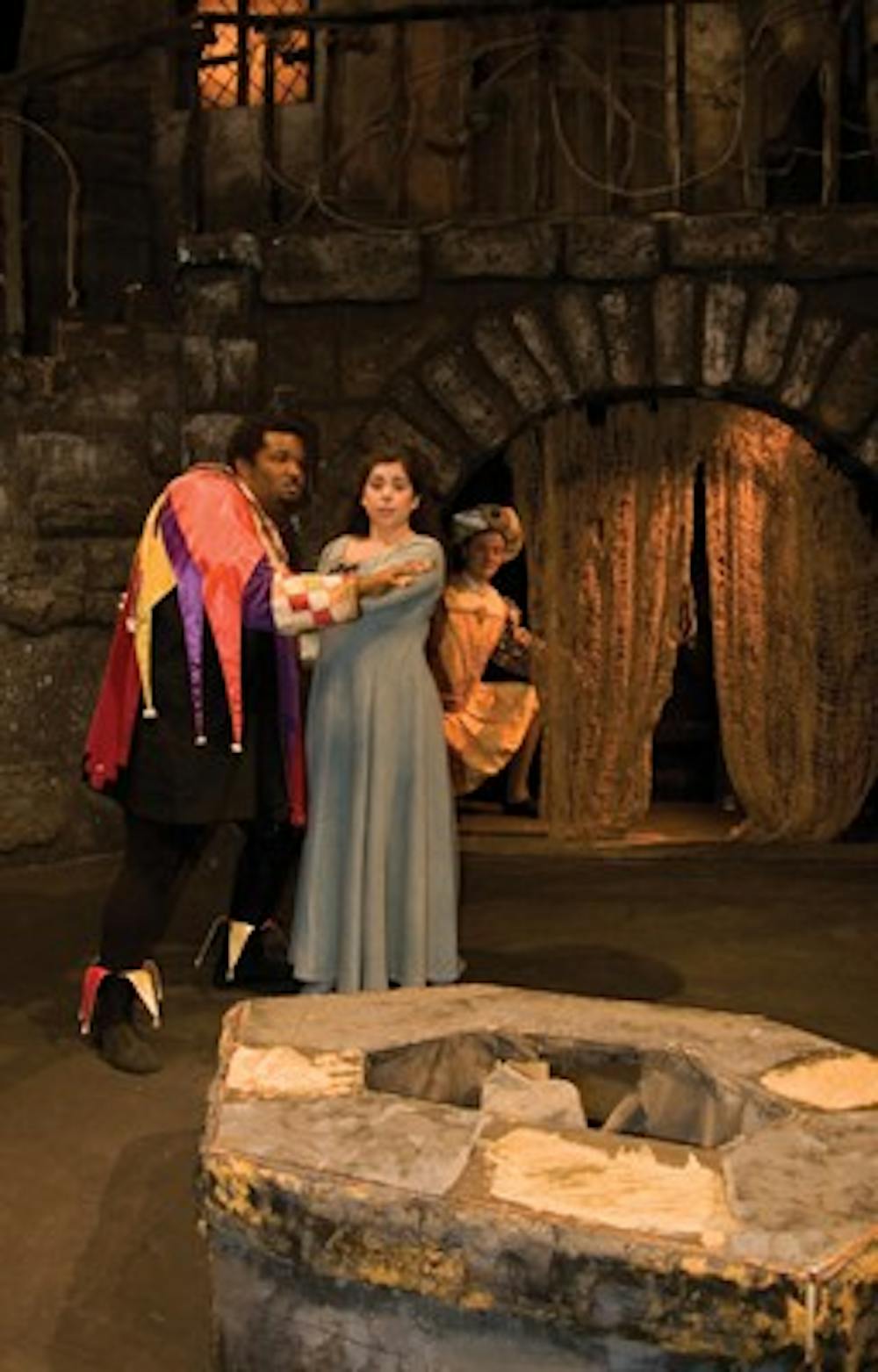The IU Opera Theater will open its 2007-08 season this Friday with Giuseppe Verdi’s opera “Rigoletto.” Conductor Stephen Lord, recently chosen by Opera News as one of the “25 Most Powerful Names in U.S. Opera,” will lead the Jacobs School of Music Symphony Orchestra, accompanying two alternating casts of some of IU’s top operatic singers. \nBased on Victor Hugo’s banned play “Le roi s’amuse,” the libretto, or text, to Verdi’s “Rigoletto,” written by Francesco Maria Piave, barely squeaked by the censors to avoid the same fate. The story is of Rigoletto, a sharp-tongued, hunchbacked court jester working for the less-than-pure Duke of Mantua. Ridiculing the father of one of the Duke’s conquests, the superstitious jester is cursed by the old man. Rigoletto’s beloved daughter Gilda falls in love with the Duke, is seduced by him and later abandoned. The jester vows revenge and death. \n“In our time of fast moving life, in times of social disorientation, in times of racial discrimination and discrimination based on personal haves and have-nots, (Rigoletto) is very pertinent,” Lord said in an e-mail interview. “The great lesson is that we must be ourselves, we must not pretend to be anything (and we should be) proud of our ability to love unselfishly. Woe be to him who is not true to himself, as the opera shows.” \nThe production is the culmination of a tremendous effort on the part of many people. As described by stage director Vince Liotta, the rehearsal process lasts three to four weeks, but that is after the cast has already prepared their roles and learned the musical material. These rehearsals are meant for developing a character and creating a specific look and feel for the production. This might mean rehearsing up to six days a week, six hours a day. The support staff for this production is more than 90 people which, as Liotta points out, is on the small side. \nMaybe the biggest group of “support staff” is the orchestra, who is usually shivering in the dark pit between the audience and the stage. Unlike the singers, they have the comfort of having sheet music on the stand in front of them – three continuous hours of sheet music. Ideally, they are also expected to provide three continuous hours of focus and follow the conductor’s every move. A large part of the musical success of the production rests on the conductor’s shoulders.\n“Rigoletto” poses an additional challenge: A separate instrumental ensemble plays backstage during the show and must be worked into the texture of the opera. As Lord explained it, “The coordination back and forth, the instrumentation and just the distance factor from what else is going on is a nerve-wracking, nail-biting event.” \nThis particular production of “Rigoletto” also marks an end of sorts. The lavish set, built 33 years ago by the legendary Swiss-born set designer, the late Max Röthlisberger, will be laid to rest once the curtain closes Sept. 29.\n“Max had a real sense of story and atmosphere for any given opera,” said Peter Jacobi, professor emeritus in the School of Journalism and music critic for the Bloomington Herald-Times. “He was able to rather inexpensively create useful and rich production sets. He saw to it that they were built sturdily enough to last.” \nVerdi’s “Rigoletto,” which premiered in 1851, has become one of the most enduring works in the operatic repertoire.\n“Opera has been around for over 400 years,” Liotta said in an e-mail interview. “Anything that lasts that long can only do so because it entertains.” \nAs for its relevance today? \n“Is there ever a time when misguided love, bitterness, a lack of consideration and the evil that can result from (these things) been irrelevant?”
Misguided love, bitterness and murder
‘Rigoletto’ kicks off opera season

Get stories like this in your inbox
Subscribe





